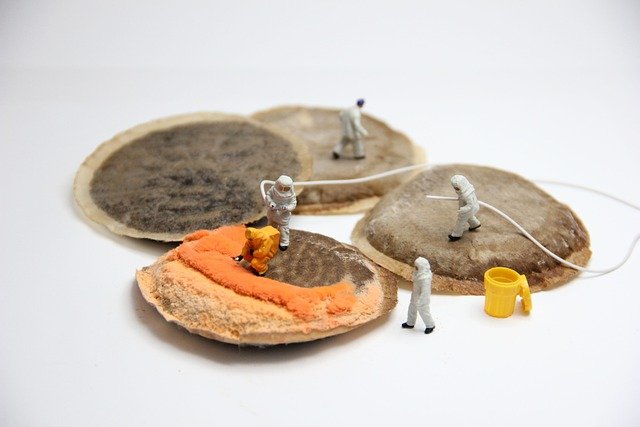Learning about the things you put in and, on your body, can improve your health in incredible ways. The fact is, most people don’t realize that personal care products are filled with toxins that with prolonged exposure can have major health consequences. From breathing problems to skin rashes to cancer, these ingredients are nothing to joke about.
The Environmental Working Group continues to monitor ingredients in many popular personal care products. They even have a dirty dozen list of the worst offenders. Many of these chemicals have been linked to major health problems. So here’s a list of some of the worst options out there.
Synthetic Fragrance
Fragrance is a catch-all term for the chemical cocktail of scents added to personal care products. It’s not always obvious what’s in this blend, so you’ll want to make sure you’re avoiding fragrances that could trigger allergies or irritate sensitive skin. Using products with these harmful fragrances can trigger asthma and other respiratory issues and can cause migraines and worse. Spraying them on your body, inhaling them, and having them absorbed into the skin is damaging. Look for products with essential oils or botanical extracts if you want a scented alternative.
Petroleum and mineral oil
If you’re like most people, you grew up with a jar of petroleum jelly somewhere in your home. Petroleum and mineral oil are two of the most common ingredients in personal care products. They can be found in lip balms, soaps, sunscreen, and even nail polish. This ingredient is derived from crude oil, which is a non-renewable resource that is often environmentally damaging to extract.
Petroleum and mineral oils can cause skin irritation when used on the skin because they aren’t able to properly absorb into your skin. Additionally, the chemical residues left on them through the extraction process can also be irritating. Look for oils like avocado oil, coconut oil, and even beeswax instead if you want a healthier alternative. It’s also critical to choose items that have undergone personal care product testing to ensure they are safer.
Parabens
Another harmful ingredient to watch out for is parabens. They are preservatives that are used in cosmetics to prevent the growth of unwanted bacteria and fungi. Some studies have linked parabens to endocrine disruption, so they can impact hormones in sensitive individuals. Parabens can be absorbed through the skin and have been linked to cancer, reproductive problems, and asthma.
Formaldehyde
Well, for starters, formaldehyde is used to preserve dead things. That’s already a problem when you are alive and well. But, what most people don’t know is that it’s a carcinogen. Formaldehyde can be found in some nail polish and hair straighteners. Additionally, it’s in many different hair coloring products as well. Because of the public perception of this ingredient, some companies are starting to remove it from their products. There are options out there for hair products, so take the time to research your nail and hair products to find one that’s less harmful.
Lathering Ingredients
Sodium lauryl sulfate (SLS) and sodium laureth sulfate (SLES) are both surfactants that are used in many personal care products to help create a lather. These chemicals can be irritating to the skin and eyes, but they’re also known to be contaminated with ethylene oxide, a known carcinogen that has been shown to cause cancer in lab animals. SLS is found in hair shampoos and conditioners, toothpaste, body wash/soap products, and shaving creams or gels.
Talc
Talc is a mineral that can be found in many personal care products, including baby powder and body powder. It’s used to absorb moisture and reduce friction, making it especially useful for preventing rashes on sensitive skin. However, talc has been linked to cancer. Specifically, the National Cancer Institute reports that talcum powder is associated with ovarian cancer at rates up to 2 times higher than women who do not use it regularly. Additionally, talc is often found in eyeshadow and blush. You can easily use cornstarch instead of baby powder and body powder and many companies are starting to create makeup options that are talc free.
Triclosan
Sure, you want to keep your hands clean on the go, but triclosan isn’t the best choice. Triclosan is used in many antibacterial products, such as hand soap, and even in many commercial toothpaste options. Although triclosan is effective at killing bacteria, it isn’t always necessary to use it on your body, and can have harmful long-term effects. It’s best to use regular soap and warm water to wash your hands when you need them clean.























